Being professionally satisfied often means having better opportunities, higher salaries and external recognition. As we’ve seen in our Sunny Scientist survey, this is also true for the academic environment. The most commented challenges for academics were finding funding for future projects and getting long-term stable positions.
In many, this lack of stable opportunities may trigger anxiety or fear for the worst. Yet, relying on external assurance and stability for our happiness is not a sustainable strategy and only drains us of our energy.
Hence, handling unstable situations requires us to appreciate the journey rather than the outcome. By focusing our energy on finding solutions to problems rather than on the problem itself, we are focusing on the action. This mindset helps us become more resilient and master uncertainty and instability. A much-needed attitude in academia as we’ve seen in our Sunny Scientist survey.
What security and stability mean during your academic path
Looking at the academic environment, security and stability probably mean something completely different for you and for me. In general, having security includes having the capacity to achieve things and the ability to reward yourself for what you do regardless of external validation or acceptance.
When you accept your own abilities, core values and life experiences, you start recognizing your own worth. In such a state, external criticism or rejection will not be a threat to your internal well-being.
The concept of stability works similarly. We tend to seek stability when we lack the ability to control our feelings and emotions. Hence, achieving stability often goes along with learning to manage oneself.
For many, insecurity and instability are omnipresent in the academic environment. And when feeling insecure, we often think we might find security by chasing an external reward. However, when these external factors are missing, we might feel that there is no plan to work towards. Thoughts of giving up academic goals might arise.
For example, money is an essential structural base on which research projects depend. However, in this scenario, you have two options: You can put your effort into the need of money for your next project funding and see how your brain gets drained by the stress of this problem.
Or, you can focus on the strategy of obtaining money and come up with an approach for your grant application. By directing your attention to the solution rather than the problem, you will open your mind to new strategies, which will consequently affect your emotional balance and the outcome of the problem.
With this strategy, you will spend your energy on the actions that you can control – coming up with a great approach for your grant application. By focusing your energy on the actions rather than on the outcome, you will soon feel more confident about your next goals and realise that your worth does not depend on external sources.
Energy is constantly flowing
It seems it comes all down to how you manage your own energy. Using your internal energy to focus on finding solutions helps you pursue project funding with rational positivity.
Buddhist philosophy might help comprehend this concept. One of their three pillars of existence is anicca, the impermanence. It considers that all things are in a constant state of flux; energy is constantly flowing and changing everything around us including ourselves. What is guaranteed today may not be there tomorrow.
For you, this could also mean that the most stable position a scientist can get may not always be stable due to world or political changes. A new crisis may arise and mess everything up. When an external factor changes and we were focussing on the need for this external factor, we might collapse.
This is where resilience comes into play; the capacity to withstand and recover from external difficulties. Developing resilience is fundamental to keeping you on the right track towards your goals and allows you to enjoy the journey.
Again, it comes down to how you use your energy. By understanding that you do not need external energy to move forward, nothing will stop you from achieving your goals.
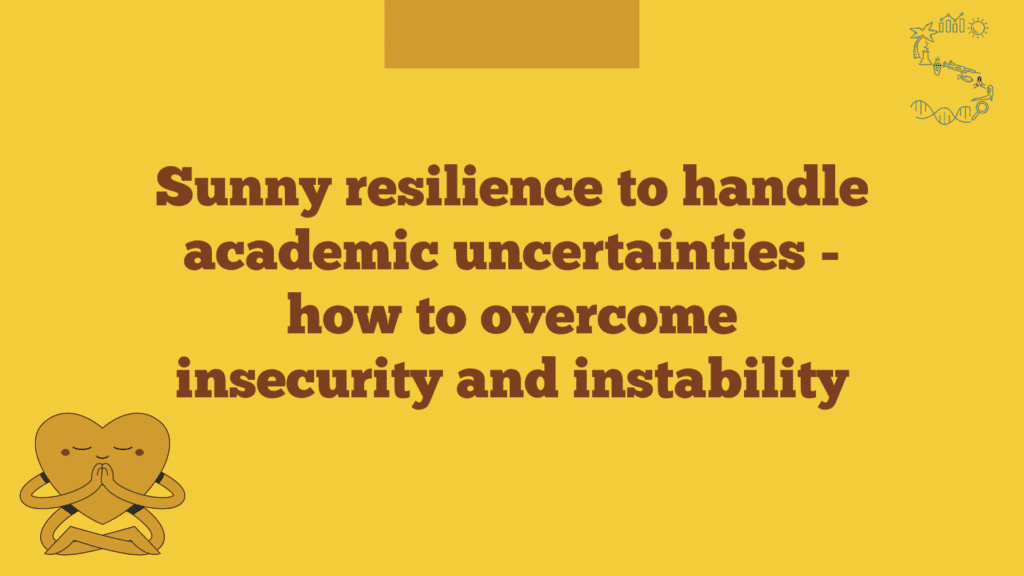
Mindfulness to connect with your inner energy
One way to understand how you usually spend your energy is through self-awareness and regular meditation practises. With a mindfulness approach, you will see what you devote your time – and thus your energy – to by analysing your thoughts and feelings about yourself, others and your current situation.
When finding mental silence through meditation, you can easily separate your emotional reactions and self-destructive criticism from constructive thoughts and ideas. Through mindfulness practise, you will focus on rational positivity, judgment-free and grateful ways to see things which will help you access your inner source of power.
Yet, be aware, that power doesn’t require a force as it is gracious, easy, light and grounded. It brings automatic confidence and a state of “I can do it”. A great tip is, whenever you feel a situation you are going through is heavy, ask yourself “How can this get any lighter?”
Connecting to our inner power allows us to find the inner sense of safety, emotional control and confidence. Once our inner power is unleashed, we learn to choose jobs that fulfil us and give us energy, live in places we thrive in, focus on relationships that inspire and direct our attention to the things, people, opportunities and support we have – rather than on what we think we are missing. And most of all, by cherishing everything that we have, we live life with pleasure!
Achieving sunny pleasure requires you to let go of the need for external factors for your happiness and success. Instead, focus on solutions that you can act on and bring you inner security and stability. You’ll see that with an action-based mindset, you’ll feel more confident about yourself, your projects and your potential.
Start mindful meditation for more resilience
We know that this journey is not easy; it seems easier to focus on what we lack than cherish what we have. To help you with this practise, we created the meditation medley with four mindful meditations. This mindful meditation month aims to connect you with yourself and bring gratitude and a more positive view to your life.
Try out mindful meditation with our free practice or get the full meditation medley and feel a real change in your mindset.
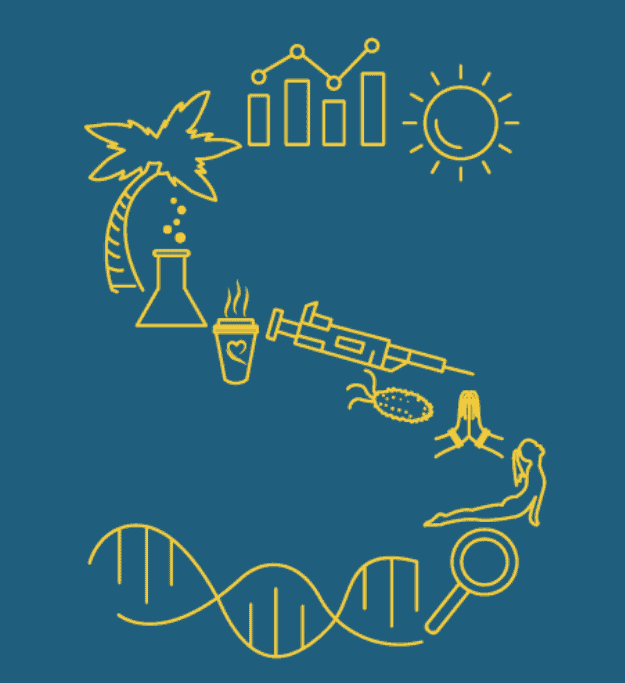

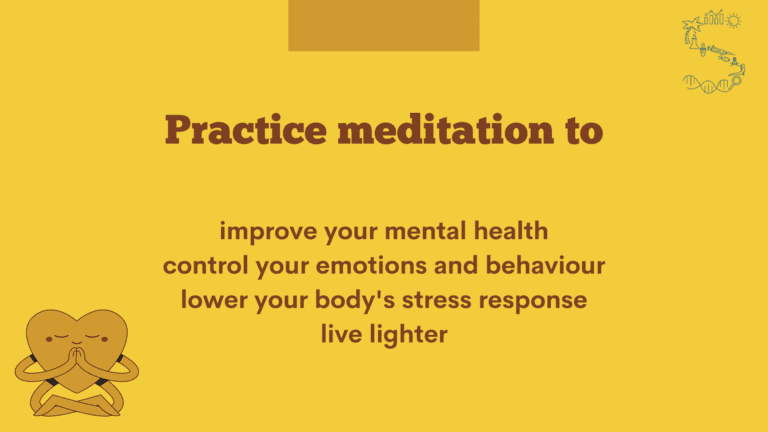
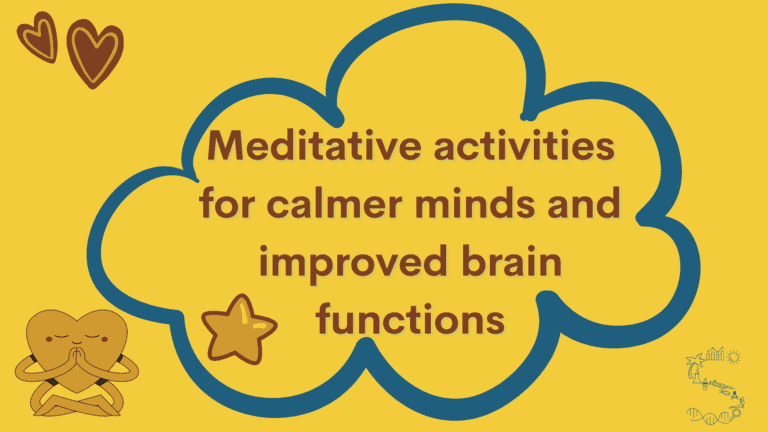
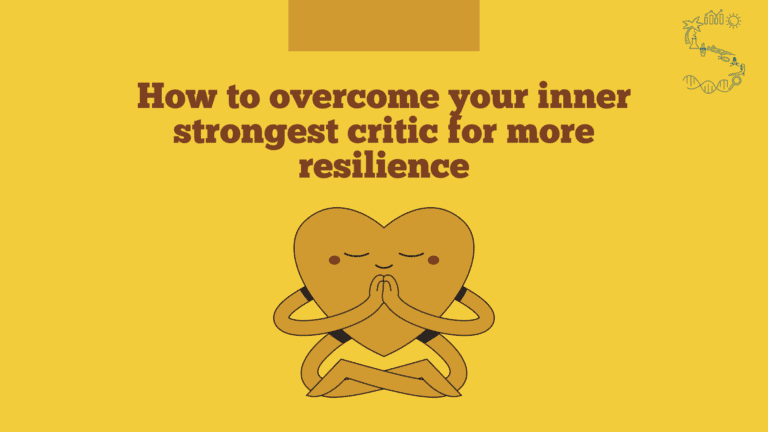
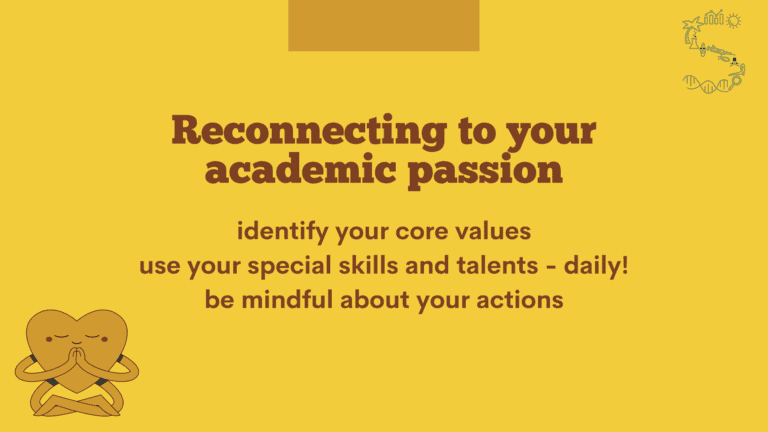

2 Responses